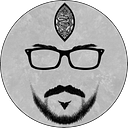THE ILLUSION OF MASTERY
Navigating the crowded waters of Modern Magick
In the realms of esoteric studies and magical practices, a burgeoning trend has emerged, particularly pronounced in the late 2010s and reaching a zenith during the challenging period of the pandemic and subsequent lockdowns. This trend, fueled by the boundless reach of social media platforms, has seen a significant surge in interest in and participation in various forms of magical and pagan practices.
However, amidst this wave of enthusiasm, a critical observation comes to the fore: the path to becoming an adept, let alone a master, in any magical discipline, is arduous, demanding dedication and depth of study that goes far beyond the surface-level engagement often portrayed online.
The journey into magical practices is indeed profound and complex. It is a path paved with the stones of historical knowledge and practical experience, but its true essence lies in the realm of self-reflection and personal transformation. The resurgence of interest in these ancient practices speaks volumes about the collective yearning for meaning, connection, and empowerment in times of uncertainty and change. Yet, it’s crucial to acknowledge the distinction between initial fascination and the lifelong commitment required to truly advance in these arts.
Many of those who engage with magical practices, particularly those who discuss and share their journey on social media, are at the beginning of their path. The digital age has democratised access to information, allowing anyone with an interest in the occult, paganism, witchcraft, and other esoteric practices to explore these areas with ease. However, it’s important to note that the complexities and nuances of these practices cannot be fully grasped through online forums or social media posts alone. A mere five years of sporadic practice, lacking a solid foundation and rigorous discipline places one still firmly at the beginner’s threshold.
This perspective is echoed in the insightful series of articles titled We Are Not Goddesses by Caitlin Matthews on Substack. Matthews, a renowned author in the field, adeptly addresses the nuanced misunderstandings and exaggerations prevalent in neo-pagan spaces, particularly the tendency to view every female practitioner as a “goddess”. Through her writings, Matthews invites a deeper reflection on the nature of personal power, the responsibilities of those who walk the magical path, and the importance of grounding one’s practice in humility and authenticity.
“In assuming the mantle of ‘goddess’, do we not risk oversimplifying the rich tapestry of divine femininity and its myriad expressions?” she posits, urging readers to consider the depth and sacredness of the roles they aspire to embody.
Matthews’ work is a timely reminder of the value of sincerity and depth in the pursuit of magical knowledge. It underscores the importance of acknowledging where we truly stand on our path, respecting the journey’s complexity, and dedicating ourselves to a lifelong pursuit of wisdom. This perspective is crucial not only for personal integrity and growth but also for the preservation of the esoteric traditions themselves. In an era where superficial engagement and quick fixes are all too common, the call to embrace a more grounded and earnest approach to magical practice is both refreshing and necessary.
Before we draw conclusions, it’s imperative to reflect on the evolving landscape of esoteric and magical studies, a theme I delved into a few months ago in my own article titled The Final Failure of Easy Magick. In it, I explored the dichotomy of our current era: the unparalleled ease of accessing information juxtaposed with the diminishing capacity to discern the quality of that information.
We find ourselves navigating a new space where the influx of information is overwhelming, and the ability to separate the wheat from the chaff is increasingly crucial yet challenging. This dilemma extends into the realm of spiritual knowledge and training, areas traditionally guarded and transmitted with meticulous care. The question of monetising such sacred understanding has always been contentious. However, as we grapple with the realities of a late-capitalist society, the exchange of spiritual teaching for financial compensation is becoming normalised. The necessity of making a living does not exempt those who walk the spiritual path, yet this acceptance has led to a proliferation of low-quality, commercialised spiritual offerings.
The scene is now saturated with beginners posing as seasoned practitioners, their insights often no deeper than a cursory Wikipedia article. This trend is exemplified by a notorious figure on TikTok who pivoted from promoting Thelema to embodying a traditional wife archetype within a mere couple of years, illustrating the fleeting and superficial engagement with profound spiritual traditions. Moreover, Hollywood life coaches, unsuccessful in their mainstream endeavours, now rebrand themselves as magicians, offering diluted and repackaged wisdom as ancient knowledge. This influx of dubious quality and authenticity underscores a critical challenge: discerning and valuing genuine spiritual guidance in an era defined by its scarcity.
It’s clear that while the democratisation of spiritual knowledge offers unprecedented access and potential for personal growth, it also necessitates a renewed commitment to discernment, integrity, and depth in our practices.
The landscape of magical and esoteric studies is transforming, influenced by both the potentialities and pitfalls of the digital age.
